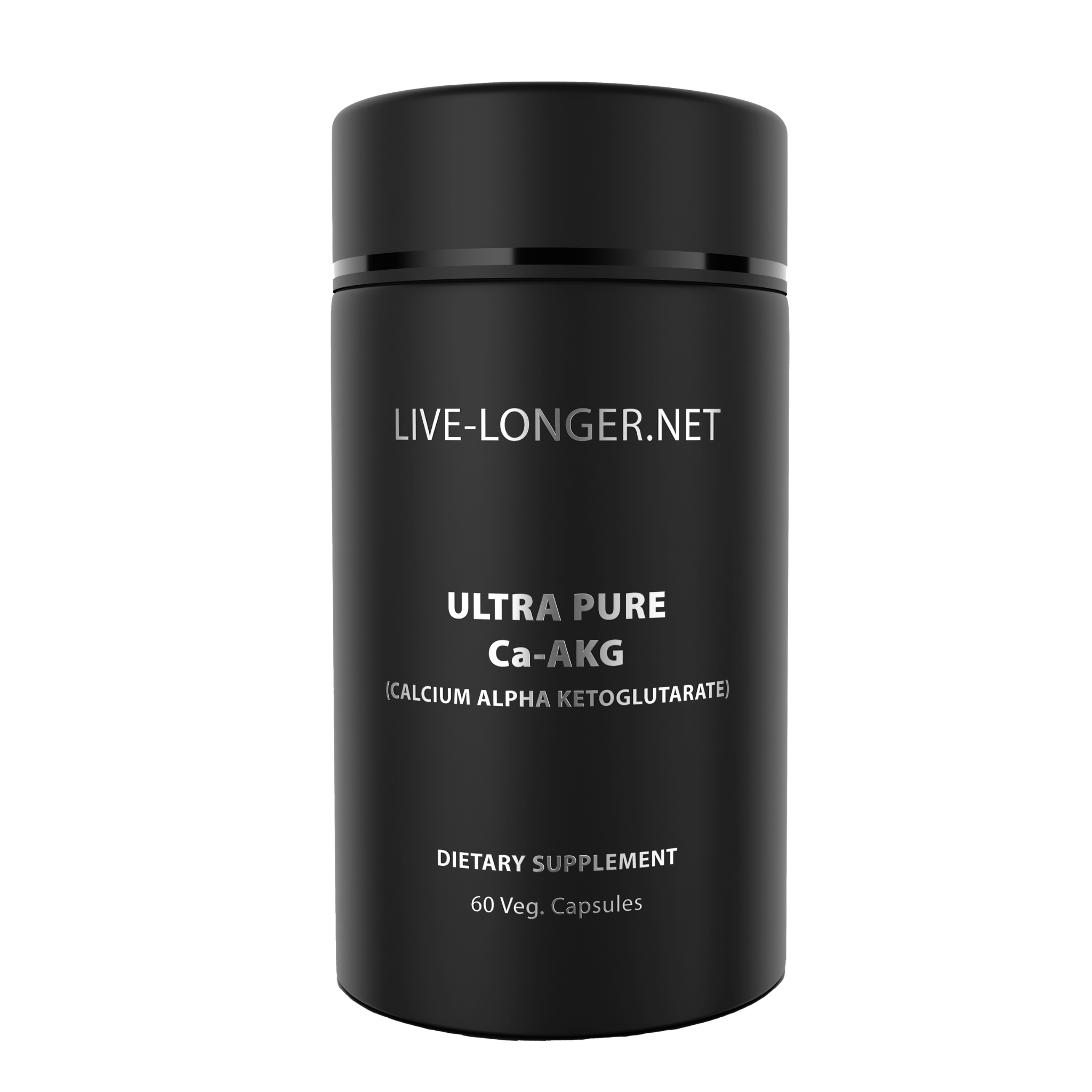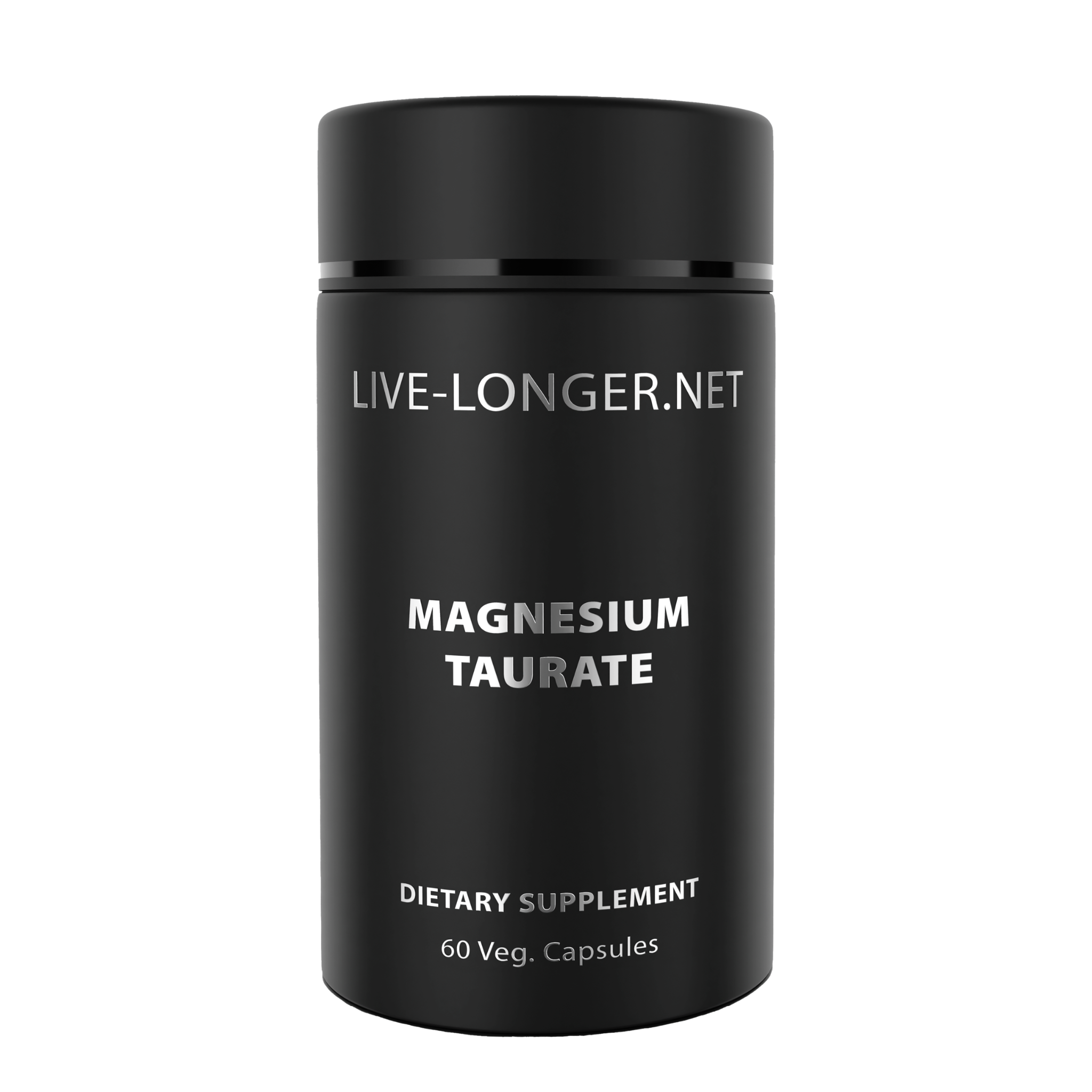Healing Potential of Apigenin: Benefits You Need to Know
Since the beginning of life on earth, humankind has been searching for the "Water Of Life." While there is no such thing, various natural compounds can help us slow down the aging process – in other words, "reverse aging." Apigenin is one of the myriads of compounds that can play a role in slowing down aging and make you live a youthful life even in your 70's.
Apigenin is a natural compound that is found in many different plants, vegetables and fruits. It stands out as an incredible anti-aging compound. Today we are here to explore apigenin benefits, how does it work. So, without further ado, let's get started!
What is Apigenin?
If you're unfamiliar with what apigenin is, think of it as a substance present in plants. Such substances are called flavonoids. These substances have extraordinary antioxidant and anti-inflammatory properties. And if you're much into skincare, you might already know how important these two properties are for our body.
So, apigenin is also a flavonoid that is mostly found in plants like parsley, chamomile, celery, kumquats, and spinach (1).
Recently apigenin has gained attention in the field of medicine because of its strong health-promoting effects. It prevents age-related damage in the body, stops inflammation, promotes protein synthesis, and protects brain cells from damage (2).
Moreover, getting an adequate amount of sleep is very important for a healthy body. And apigenin causes muscle relaxation, and induces sedation and sleep as well.
Other names of Apigenin:
- Biapigenin (a dimer found in nature)
- 4' 5 7-Trihydroxyflavone
How does aging affect us?
Aging can be pretty complex, and it looks like inflammation might have a lot to do with why we tend to get sick more often as we get older. Scientists have come up with a special word for this kind of low-key, chronic inflammation that happens more as we age: inflammaging.
Inflammation is not a bad thing; it occurs to fight germs and prevent infection. When we're young, this inflammation helps us by quickly kicking germs to the curb and helping our wounds heal faster. Our bodies are great at keeping this helpful inflammation in check, making sure it's just the right amount to fight off germs.
However, as we get older, though, this balance gets out of whack. Our bodies start to produce too many inflammatory substances. Too much inflammation for too long is actually harmful for us. Chronic inflammation in the body can damage body organs leading to their dysfunction (3).
The search for the substance that can ameliorate these age-related damage has led to the discovery of apigenin.
Reverse Aging with Apigenin – What is Apigenin's Role in Aging?
Now you have understood the concept behind aging. Let's see how apigenin reverse the aging process.
Firstly, it fights off the chronic inflammation that is associated with aging. Secondly, it increases the NAD+ levels. Now what is NAD+? and why is it important? NAD+ is like a fuel that is required to carry out various processes in the body including DNA repair mechanisms (4).
These two mechanisms play a significant role in apigenin's potential as the anti aging agent.
But all the above mechanisms will make a person healthy internally, so, what about the external appearance?
I mean there's no youth without flawless and bright skin. Well, apigenin also protects your skin from the damage caused by the ultraviolet radiations. It increases skin elasticity to give your skin a youthful appearance (5).
What are the Benefits of Apigenin?
Let's discover various other benefits of apigenin especially for the middle age people who do not want to go through tiring aging process:
Anti-Cancer properties
Cancer is simply defined as an uncontrolled growth of cells. Apigenin can stop this growth of cancer cells and cause them to self-destruct (apoptosis) by affecting different pathways in different types of cancer, including lung, breast, skin, liver, colon, blood, pancreatic, prostate, oral, and cervical cancer (6).
When combined with other treatments like sorafenib or gefitinib, apigenin enhances their effectiveness in killing cancer cells (7). It can also prevent cancer cells from spreading and reduce the growth of tumors.
Natural detoxifier
Our body produces lots of waste products on a daily basis. It is essential to remove these waste products to maintain the body's homeostasis.
Apigenin is a natural detoxifier that reduces burden on our detoxifying organs (8).
Prevents kidney damage
Kidneys are our detoxifying organs. Apigenin preserves kidney health by protecting them from harmful substances like drugs or toxins (9).
Even animal studies have shown that when apigenin was given, their kidneys retained their normal function and even worked better (10).
Neuroprotective action
With progressive age, the brain starts to shrink and brain cells die more often. Research has proved apigenin as a potential substance that can protect neurons and prevent brain damage with aging (11).
The mechanism behind the various neurodegenerative diseases like Alzheimer's and Parkinson's disease is the age-associated chronic inflammation in the brain cells.
Studies have shown that apigenin aids in reducing inflammation in the brain and protects against damage caused by oxidative stress, providing further support for its neuroprotective effects (12).
Anti-inflammatory role
Inflammation occurs in our body because of increased release of some inflammatory molecules. Apigenin works like a stop sign for these signals, helping to calm things down.
In experiments on animals and cells, apigenin was shown to lower inflammation caused by harmful substances. It does this by blocking the signals that trigger inflammation in the body (13). Apigenin seems like a promising natural way to fight inflammation and feel better.
Antioxidant
Oxidative stress happens when there are too many unstable molecules called free radicals in your body. These free radicals can damage cells and DNA, which can lead to aging and various health problems. As we age, our bodies become less efficient at fighting off these free radicals, which contributes to the aging process.
Apigenin is recognized for its antioxidant capabilities, which play a crucial role in combating the oxidative stress associated with aging (14).
Anti diabetes potential
Apigenin is a natural compound that can keep your blood sugar levels stable. It works by stopping certain enzymes that increase blood glucose levels; thus helps to keep their blood sugar from spiking too high (15).
Protects heart health
Apigenin helps protect against damage caused by certain drugs and inflammation. It can reduce markers of heart injury, lower inflammation, and improve cholesterol levels (16). Also, it helps prevent cell death and oxidative stress, which are harmful to the heart.
Studies in rats and cells show that apigenin improves heart function, reduces heart attack damage, and lowers inflammation (17). It also seems to protect against conditions like pulmonary hypertension.
Protects your skin
Skin, being the largest organ and the forefront of our interaction with the environment, is often the first to show signs of aging.
Apigenin has been reported to stimulate nucleotide excision repair genes, thereby protecting skin cells against UVA-induced inflammation and potentially attenuating the development of atopic dermatitis-like skin lesions (5). This protective role is further enhanced by Apigenin's ability to prevent skin inflammatory responses, ensuring the proper regulation of inflammatory cells and preserving skin's youthful elasticity and firmness.
Bone density
Studies in mice have found that apigenin has a positive impact on bone density, promoting bone synthesis and enhancing the healing of bone defects (18)
Mental health
Apigenin has been noted to support healthy aging through mental and emotional well-being. Research suggests that Apigenin has the ability to alleviate anxiety and improve memory functions, making it a valuable ally in the fight against cognitive decline (19).
Since apigenin reduces inflammation, does it affect immune health?
Although apigenin reduces inflammation by decreasing the release of inflammatory enzymes and cytokines, it also acts as an antioxidant, protecting cells from damage by free radicals.
Does apigenin affect hormonal health?
Apigenin can lower cortisol, the stress hormone, in human cells (20). In mice, it showed potential for improving insulin response but hasn't been proven in humans yet (21).
It might also influence reproductive hormones like testosterone and estrogen, possibly affecting breast cancer cells' growth and activity (23) (23).
Safety and Consumption
When it comes to incorporating Apigenin into your daily regimen, it is considered safe when consumed in normal dietary amounts.
The Bottom Line
Apigenin is a powerful natural ally in the fight against aging. It is a natural compound that offers a plethora of health benefits with its reverse aging potential.
Its anti-aging properties, coupled with its role as a detoxifier, protector against kidney damage, stimulator of neurogenesis, and reducer of anxiety and inflammation, make it a powerful ally in maintaining health and well-being.
Whether consumed through diet or supplementation, Apigenin stands as a testament to the potency of natural substances in the quest for longevity and vitality.
References
- Wang, M., Firrman, J., Liu, L., & Yam, K. (2019). A Review on Flavonoid Apigenin: Dietary Intake, ADME, Antimicrobial Effects, and Interactions with Human Gut Microbiota. BioMed research international, 2019, 7010467.
- Salehi, B., Venditti, A., Sharifi-Rad, M., Kręgiel, D., Sharifi-Rad, J., Durazzo, A., Lucarini, M., Santini, A., Souto, E. B., Novellino, E., Antolak, H., Azzini, E., Setzer, W. N., & Martins, N. (2019). The Therapeutic Potential of Apigenin. International journal of molecular sciences, 20(6), 1305.
- Franceschi, C., & Campisi, J. (2014). Chronic inflammation (inflammaging) and its potential contribution to age-associated diseases. The journals of gerontology. Series A, Biological sciences and medical sciences, 69 Suppl 1, S4–S9.
- Kramer, D. J., & Johnson, A. A. (2024). Apigenin: A natural molecule at the intersection of sleep and aging. Frontiers in Nutrition, 11.
- Choi, S., Youn, J., Kim, K., Joo, daH., Shin, S., Lee, J., Lee, H. K., An, I. S., Kwon, S., Youn, H. J., Ahn, K. J., An, S., & Cha, H. J. (2016). Apigenin inhibits UVA-induced cytotoxicity in vitro and prevents signs of skin aging in vivo. International journal of molecular medicine, 38(2), 627–634.
- Rahmani, A. H., Alsahli, M. A., Almatroudi, A., Almogbel, M. A., Khan, A. A., Anwar, S., & Almatroodi, S. A. (2022). The Potential Role of Apigenin in Cancer Prevention and Treatment. Molecules (Basel, Switzerland), 27(18), 6051.
- Chen, Z., Tian, D., Liao, X., Zhang, Y., Xiao, J., Chen, W., Liu, Q., Chen, Y., Li, D., Zhu, L., & Cai, S. (2019). Apigenin combined with gefitinib blocks autophagy flux and induces apoptotic cell death through inhibition of hif-1α, c-MYC, P-EGFR, and glucose metabolism in EGFR L858R+T790M-mutated H1975 cells. Frontiers in Pharmacology, 10.
- Fahad Ali, Rahul, Falaq Naz, Smita Jyoti & Yasir Hasan Siddique. (2017). Health functionality of apigenin: A review. International Journal of Food Properties, 20:6, 1197-1238.
- Zhang, J., Zhao, X., Zhu, H., Wang, J., Ma, J., & Gu, M. (2019). Apigenin Protects Against Renal Tubular Epithelial Cell Injury and Oxidative Stress by High Glucose via Regulation of NF-E2-Related Factor 2 (Nrf2) Pathway. Medical science monitor : international medical journal of experimental and clinical research, 25, 5280–5288.
- Azimi, A., Eidi, A., Mortazavi, P., & Rohani, A. H. (2021). Protective effect of apigenin on ethylene glycol-induced urolithiasis via attenuating oxidative stress and inflammatory parameters in adult male Wistar rats. Life sciences, 279, 119641.
- Nabavi, S. F.; Khan, H.; D’onofrio, G.; Šamec, D.; Shirooie, S.; Dehpour, A. R.; Argüelles, S.; Habtemariam, S.; Sobarzo-Sanchez, E. Apigenin as Neuroprotective Agent: Of Mice and Men. Pharmacol. Res. 2018, 128, 359–365. DOI: 10.1016/j.phrs.2017.10.008.
- Kim, M.; Jung, J.; Jeong, N. Y.; Chung, H.-J. The Natural Plant Flavonoid Apigenin is a Strong Antioxidant That Effectively Delays Peripheral Neurodegenerative Processes. Anat. Sci. Int. 2019, 94(4), 285–294. DOI: 10.1007/s12565-019-00486-2.
- Zhang, X.; Wang, G.; Gurley, E. C.; Zhou, H. Flavonoid Apigenin Inhibits Lipopolysaccharide-Induced Inflammatory Response Through Multiple Mechanisms in Macrophages. Plos One. 2014, 9(9), e107072. DOI: 10.1371/journal.pone.0107072.
- Kashyap, P., Shikha, D., Thakur, M., & Aneja, A. (2022). Functionality of apigenin as a potent antioxidant with emphasis on bioavailability, metabolism, action mechanism and in vitro and in vivo studies: A review. Journal of food biochemistry, 46(4), e13950.
- Ren, B.; Qin, W.; Wu, F.; Wang, S.; Pan, C.; Wang, L.; Zeng, B.; Ma, S.; Liang, J. Apigenin and Naringenin Regulate Glucose and Lipid Metabolism, and Ameliorate Vascular Dysfunction in Type 2 Diabetic Rats. Eur. J. Pharmacol. 2016, 773, 13–23. DOI: 10.1016/j.ejphar.2016.01.002.
- Zare, M. F. R., Rakhshan, K., Aboutaleb, N., Nikbakht, F., Naderi, N., Bakhshesh, M., & Azizi, Y. (2019). Apigenin attenuates doxorubicin induced cardiotoxicity via reducing oxidative stress and apoptosis in male rats. Life sciences, 232, 116623.
- Mahajan, U. B., Chandrayan, G., Patil, C. R., Arya, D. S., Suchal, K., Agrawal, Y. O., Ojha, S., & Goyal, S. N. (2017). The Protective Effect of Apigenin on Myocardial Injury in Diabetic Rats mediating Activation of the PPAR-γ Pathway. International journal of molecular sciences, 18(4), 756.
- Goto, T., Hagiwara, K., Shirai, N., Yoshida, K., & Hagiwara, H. (2015). Apigenin inhibits osteoblastogenesis and osteoclastogenesis and prevents bone loss in ovariectomized mice. Cytotechnology, 67(2), 357–365.
- Olasehinde, T. A., & Olaokun, O. O. (2024). The Beneficial Role of Apigenin against Cognitive and Neurobehavioural Dysfunction: A Systematic Review of Preclinical Investigations. Biomedicines, 12(1), 178.
- Ohno, S., Shinoda, S., Toyoshima, S., Nakazawa, H., Makino, T., & Nakajin, S. (2002). Effects of flavonoid phytochemicals on cortisol production and on activities of steroidogenic enzymes in human adrenocortical H295R cells. The Journal of steroid biochemistry and molecular biology, 80(3), 355–363.
- Li, W., Dai, R. J., Yu, Y. H., Li, L., Wu, C. M., Luan, W. W., Meng, W. W., Zhang, X. S., & Deng, Y. L. (2007). Antihyperglycemic effect of Cephalotaxus sinensis leaves and GLUT-4 translocation facilitating activity of its flavonoid constituents. Biological & pharmaceutical bulletin, 30(6), 1123–1129.
- Le Bail, J. C., Laroche, T., Marre-Fournier, F., & Habrioux, G. (1998). Aromatase and 17beta-hydroxysteroid dehydrogenase inhibition by flavonoids. Cancer letters, 133(1), 101–106.
- Li, W., Pandey, A. K., Yin, X., Chen, J. J., Stocco, D. M., Grammas, P., & Wang, X. (2011). Effects of apigenin on steroidogenesis and steroidogenic acute regulatory gene expression in mouse Leydig cells. The Journal of nutritional biochemistry, 22(3), 212–218.









